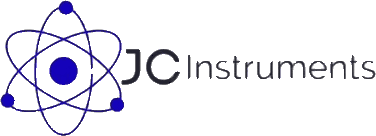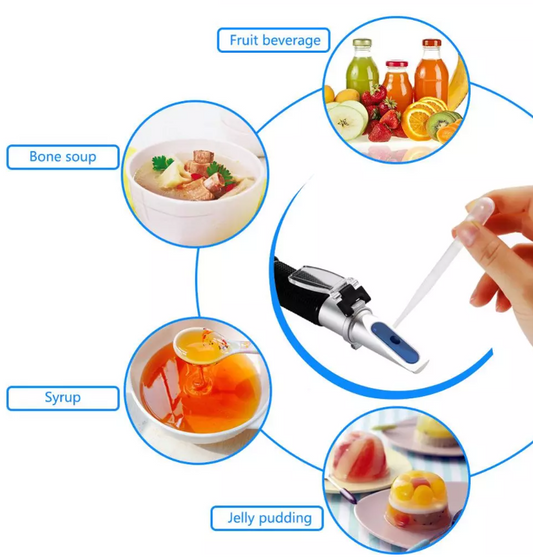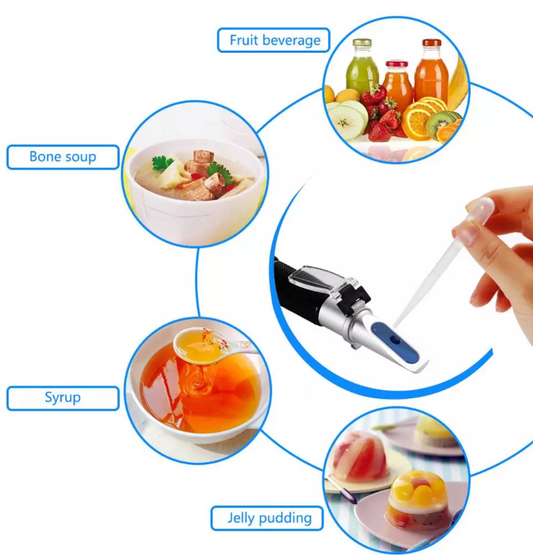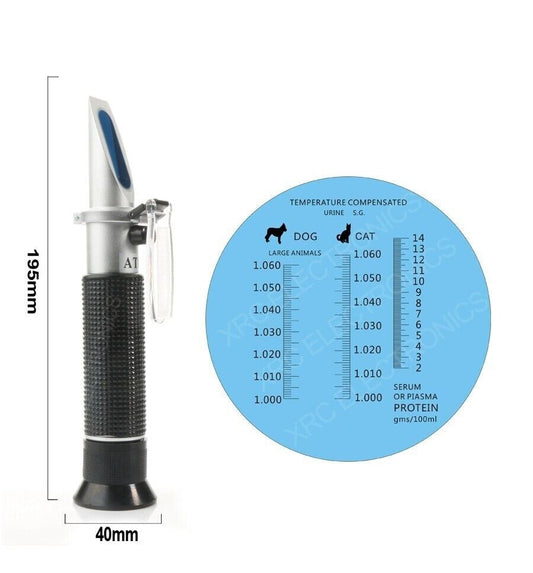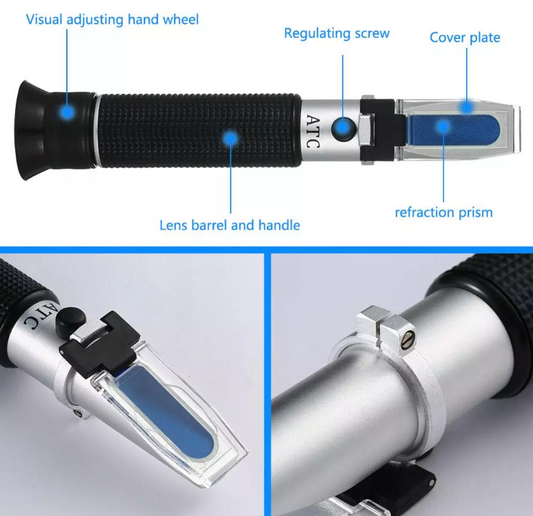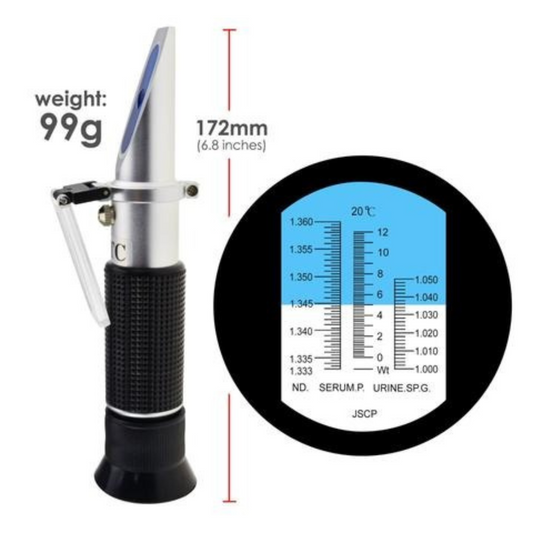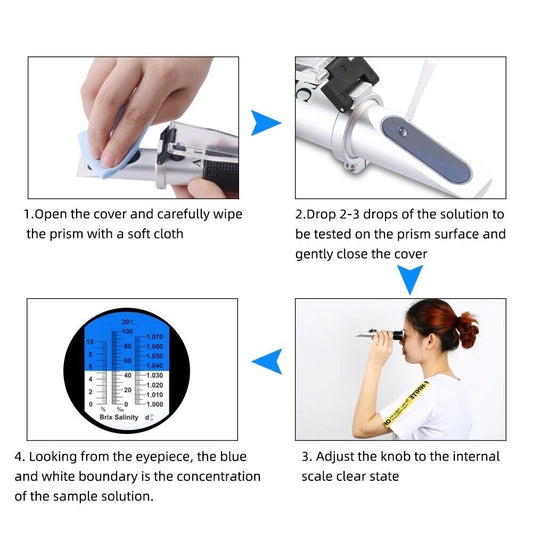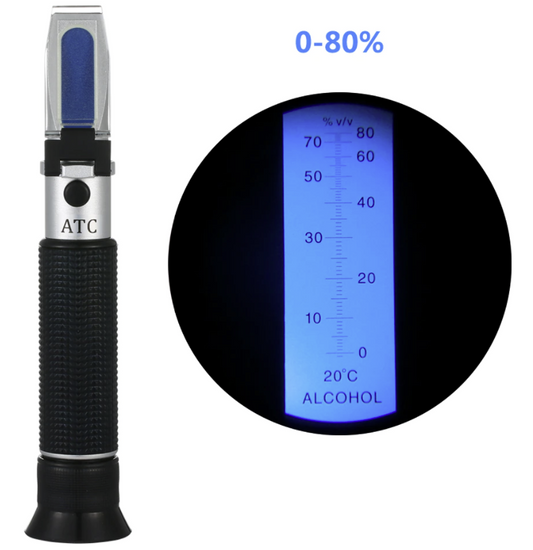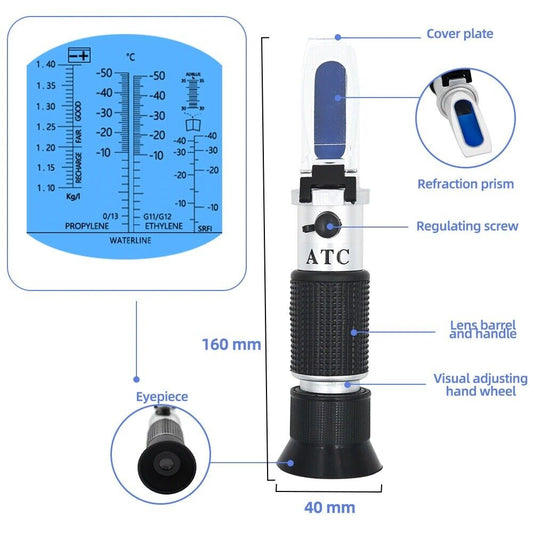Why choose JC Instruments?
-
Quality assurance — We source our refractometers from reputable manufacturers, ensuring that every product meets stringent quality standards.
-
Wide range — Our variety ensures that you can find the perfect match for your specific application, whether it be in food and beverage production, academic research or industrial settings.
-
Expert support — Our team of experts is always available to help you select the right refractometer for your needs and to provide after-sales support.
-
Fast delivery across Australia — We understand the importance of time in scientific endeavours. Therefore, we offer fast reliable shipping with 1 to 3 days delivery in Australia if needed.
-
Competitive pricing — We believe in providing professional-grade equipment at competitive prices, ensuring that high-quality tools are accessible to all.
Discover precision with our range of refractometers in Australia
At JC Instruments, we are committed to equipping professionals with the best scientific tools. Our refractometers in Australia are more than just instruments; they are partners in your quest for precision and reliability. Whether you are monitoring the fermentation process of your latest brew, ensuring quality in your food products or conducting vital research, our refractometers are designed to deliver accurate, consistent results every time.
Browse our range today and discover how our refractometers in Australia can enhance your work's accuracy and efficiency. Shop from the comfort of your own home with secure online payment methods that include major credit cards, Google Pay, Apple Pay and PayPal.
FAQs
How many types of refractometers are there?
There are primarily three types of refractometers, each designed for specific applications and levels of precision.
-
Handheld Refractometers — These are the most common and portable types. They are primarily used in field applications where quick and easy measurements are required. Handheld refractometers are further categorised based on their application, such as Brix refractometers for sugar concentration, salinity refractometers for saltwater and others for various solutions.
-
Digital Refractometers — These offer a higher level of precision and ease of use compared to handheld models. They are typically used in laboratory settings and industries where accuracy is critical. Digital refractometers provide quick, reliable readings with a digital display, eliminating interpretation errors common in manual models.
-
Abbe Refractometers — Named after Ernst Abbe, these are benchtop instruments used for high-precision measurements. They are suitable for both transparent and opaque liquids, and are essential in research and quality control laboratories where detailed analysis is necessary.
Are all refractometers the same?
While all refractometers serve the same basic purpose – to measure the refractive index of a liquid – they are not all the same. The differences lie in their design, precision and application.
Handheld refractometers are best for quick, approximate measurements in various settings. Digital refractometers, on the other hand, provide more precise and consistent readings with less user effort and are suitable for environments where accuracy is a priority. Finally, Abbe refractometers offer the highest precision and are used for detailed analysis in laboratory settings.
The choice depends on the required level of accuracy, the type of liquid being measured, and the environment in which the instrument will be used. If you’d like to know more about the differences between types of refractometers and which option in our catalogue serves your needs best, feel free to contact us.
How do you choose the best refractometer?
Choosing the best refractometer depends on several factors:
-
Application — Identify the primary use of the refractometer. For instance, if you need to measure sugar content in food products, a Brix refractometer would be ideal.
-
Precision required — For highly accurate measurements, digital or Abbe refractometers are preferable. For general field use, handheld models are sufficient.
-
Ease of use — Consider the ease of calibration and reading. Digital models offer more convenience and less room for error compared to manual models.
-
Budget — Handheld refractometers are more affordable than digital or Abbe refractometers. However, investing in a higher-priced model might be more cost-effective in the long run for frequent, high-precision measurements.
-
Durability and portability — If you need a refractometer for fieldwork, opt for a durable and portable handheld model.
By considering these factors, you can select a refractometer that provides accurate measurements and will serve you well over time. You can also reach out to our friendly and knowledgeable team if you need help finding the right refractometer in Australia amongst our expansive and varied selection.
